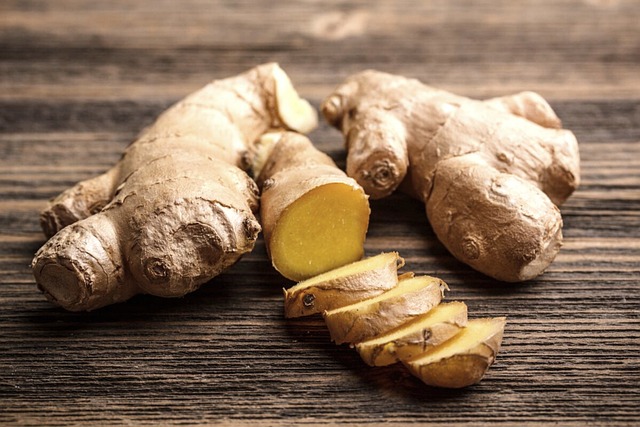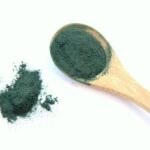Adding a pinch of cinnamon to your morning coffee or tossing in a handful of freshly chopped basil over your pasta can instantly elevate any dish. Not only do herbs and spices enhance the flavor of your food, but they also offer a myriad of health benefits. Discover the various medicinal properties of these 13 Healthy Spices And Herbs, along with delectable methods to incorporate them into your meals.
In ancient times, the Greeks utilized different spices and herbs for their medicinal benefits since modern medicine was not yet established. Hippocrates, who existed from 460 to 377 BCE, incorporated various plants like coriander, saffron, thyme, and cinnamon in his treatments, which continue to be utilized in holistic remedies these days for illnesses such as fever, pain, and other conditions. Although there is minimal scientific proof that they can heal acute illnesses, studies indicate that certain spices and herbs have properties that could alleviate specific symptoms.
It is crucial to exercise caution when taking certain herbs as they can lead to adverse effects or interact with medication. Ensure that you use them in moderation and inform your doctor about any herbal supplements you are taking.
1. Turmeric
Ease inflammation, slow cancer, lowers type 2 diabetes risk, treat depression and other conditions
The high levels of curcumin present in this precious spice provide numerous valuable advantages, making it comparable to actual gold. Scientific research reveals that curcumin possesses influential antioxidant properties, which are beneficial for treating various health issues, ranging from minor dental pain to serious illnesses, such as arthritis, heart disease, and diabetes.
Research has demonstrated that curcumin can regulate the body’s adipokine balance, which is a group of hormone-like substances responsible for sugar regulation, to protect against type 2 diabetes. Additionally, curcumin can combat pain, inflammation, and metabolic syndrome.
Turmeric serves as a powerful antioxidant and anti-inflammatory agent, capable of breaking chains and reducing oxidative stress by scavenging harmful free radicals in the body. These free radicals, which possess an imbalanced number of electrons, can lead to tissue damage and serve as catalysts for chronic illnesses, including cancer and cardiovascular disease.
Due to its significant level of antioxidants, turmeric has the ability to lower the formation of free radicals and alleviate the impact of stress on the body.
The potential of curcumin in treating Alzheimer’s, along with colon, prostate and breast cancers, is being researched by scientists. According to a small clinical trial published in 2014, curcumin could be a safe and effective treatment for depression.
2. Ginger
Alleviate nausea, combat pain caused by arthritis, alleviate migraines.
Ginger has a reputation for alleviating an unsettled stomach. Research indicates that it can provide relief from morning sickness, as well as queasiness caused by surgery or chemotherapy. Although there is no definitive proof, numerous individuals use ginger to combat motion sickness.
According to a study conducted on 100 migraine sufferers by Phytotherapy Research, this spice has been discovered to offer natural relief for those experiencing migraines.
Those who ingested 250 mg of powdered ginger (approximately 1/8 of a teaspoon) as volunteers experienced comparable relief from headaches to those who took 50 mg of the prescription drug sumatriptan (Imitrex); however, none of the medication-related side effects, such as dizziness, disorientation, and heartburn, were present.
Gingerols, which are found in ginger, are known to be anti-inflammatory compounds that some specialists think can assist in battling particular types of cancer, diminishing pain caused by osteoarthritis, and easing muscle soreness.
A study showed that those who consumed ginger capsules every day for 11 days experienced a 25 percent reduction in muscle soreness during exercise, in contrast to those who received a placebo. Additionally, another research discovered that injections of ginger extract effectively alleviated knee pain caused by osteoarthritis.
3. Cayenne Pepper
Suppress your craving, enhance metabolic rate, combat against foodborne diseases.
Adding a little bit of cayenne pepper to your meal can slightly enhance your weight loss attempts, especially if you’re not accustomed to spicy flavors.
Capsaicin is a substance found in cayenne pepper, which is responsible for the spicy taste of fresh peppers and spices such as cayenne and paprika. Research has demonstrated that capsaicin can increase the metabolic rate of the body, thereby leading to the burning of more calories. Additionally, it may trigger certain chemicals in the brain that help to suppress appetite.
During a six-week research conducted by Purdue University, 25 individuals, comprising of both individuals who enjoy spicy foods and those who do not, were given a half-teaspoon of cayenne pepper with their daily meals. Participants who were not regular consumers of spicy foods reported reduced hunger and less desire for sweet, fatty, and salty foods. The scientists attribute these advantages to the spicy taste of cayenne, which is especially beneficial for those unaccustomed to it.
It can not only increase your satisfaction, but it can also contribute to the safety of your food.
The Journal of Complementary and Integrative Medicine has documented that cinnamic acid present in this spicy chili powder can effectively eradicate Listeria and Salmonella, which are foodborne pathogens, even in small doses. Furthermore, Cayenne contains capsidiol, a plant compound that safeguards against H. pylori, which is the most common cause of stomach ulcers.
4. Cinnamon
Regulate your blood sugar by decreasing the intake of added sugars in your diet.
The American Heart Association suggests replacing sugar and sweeteners with sweet spices such as cinnamon to enhance flavor. Excessive sugar consumption by Americans may result in severe health conditions like obesity, diabetes, and heart disease. Certain research indicates that individuals with type 2 diabetes could benefit from cinnamon, which may decrease spikes in blood sugar. Although the outcomes have not been fully conclusive, additional investigation is necessary.
Lowering blood pressure doesn’t rely solely on reducing salt intake. According to a meta-analysis published in Critical Reviews in Food Science and Nutrition in 2020, consuming 2g of ground cinnamon per day (equivalent to approximately 3/4 teaspoon) resulted in an average blood pressure reduction of 7.2/2.8 mmHg, comparable to the effects of low-dose medications.
According to studies, the efficacy of cinnamon takes time to manifest with the best results observed over at least 3 months. The mechanism by which cinnamon aids in controlling blood pressure is not yet fully understood, but the hypothesis is that it may promote vasodilation, thereby enhancing blood supply to the heart and reducing its workload.
5. Garlic
Garlic is not only known for fending off vampires but also for its powerful bioactive compounds and nutrients. Research has shown that using garlic supplements, extracts, and powders can greatly decrease high blood pressure levels. A study involving more than 200 individuals with hypertension found that consuming garlic supplements on a daily basis was just as effective in reducing blood pressure as taking the beta-blocker medication atenolol.
Ginger, which is closely connected to turmeric, possesses anti-inflammatory features and a substantial amount of overall antioxidants, with only pomegranates and particular types of berries having higher amounts. Controlled studies have established the effectiveness of ginger as an anti-emetic for reducing nausea. It can be utilized for various types of nausea such as seasickness, motion sickness, and morning sickness.
Ginger has been found to possess potential anticancer properties in several studies mainly because of its strong antioxidant content. It has the ability to hinder cell division, suppress certain activator proteins and signaling pathways, and delay cell growth. However, these studies were conducted primarily in a laboratory setting, and additional clinical trials involving humans are necessary to corroborate these findings.
Despite some experts questioning the reliability of the evidence, various studies indicate that taking garlic supplements could potentially aid in both preventing and accelerating the recovery from colds.
6. Peppermint
Improve focus and enhance mood, alleviate IBS symptoms, and reduce nausea.
If you’re having a rough day, try making a pot of peppermint tea. Studies have shown that the fresh scent of peppermint can improve mood and increase mental clarity. Additionally, some research suggests that the fragrance can have a calming effect on the stomach. A small study found that women who inhaled peppermint oil after undergoing surgery reported significantly less nausea than those who received a placebo or anti-nausea medication.
Studies indicate that peppermint possesses holistic healing properties and can also serve as a viable treatment method for enhancing pulmonary and cardiovascular health as it functions as a bronchodilator. The fundamental mechanism of bronchodilators is to enlarge the bronchioles, thus making it possible for air to circulate in the lungs. A person who inhales the scent of peppermint can furthermore increase their nasal air pressure, enabling an elevated flow of air to the lungs.
Moreover, certain research indicates that peppermint possesses muscle relaxation properties due to its menthol component that provides a cooling effect. This is why several products intended to alleviate muscle pain contain menthol as a key ingredient.
Although further investigation is necessary, numerous studies indicate that peppermint oil has the ability to alleviate pain caused by irritable bowel syndrome (IBS). Specialists believe that it is effective due to its ability to decrease bloating and promote muscular relaxation in the colon.
Cumin is a spice.
Cumin, a favored ingredient in cooking, is not only aromatic but also has numerous health benefits. Aside from its high antioxidant potential, cumin aids in weight loss, cholesterol management, and stress reduction. Evidence also suggests that cumin possesses antidiabetic properties. In a study, 80 participants were given an Ayurvedic formula containing cumin for 24 weeks, and findings revealed that their postprandial blood sugar levels were notably decreased.
8. Rosemary
Enhance cognitive abilities and uplift spirits, stimulate hair growth.
Rosemary, which is a member of the mint family, is valued for both its taste and smell. Its rustic fragrance has been shown to enhance focus and potentially elevate one’s spirits. Current research indicates that even the modest quantities of rosemary included in cooking could potentially thwart cognitive deterioration among elderly individuals.
Rosemary has an additional advantage of being able to combat hair loss. According to a 2015 study, rosemary oil demonstrated results parallel to minoxidil, a widely recognized treatment for baldness. Over the course of six months, the participants who employed rosemary oil on their scalp experienced comparable hair growth and reduced itching in comparison to those who resorted to the medicine.
9. The medicinal plant known as Echinacea
Echinacea, a supplement primarily derived from the coneflower plant, is primarily used to support the immune system and prevent colds. Its ability to combat viruses has not been scientifically established yet. However, it is widely used to aid in the treatment of various conditions.
- the common cold
- upper respiratory infections
- bronchitis
- influenza
- inflammation
- ear infections
- vaginitis
- yeast infections
The effectiveness of Echinacea as a treatment for these illnesses is unproven. Most studies either contradict this claim or provide inconclusive results. Although there may be a slight connection between taking Echinacea and improving the immune system, the majority of evidence supporting its effectiveness is based on personal accounts and cannot be considered reliable.
According to a 2015 study, capsaicin, which is responsible for the spiciness in chili powder, could have a significant impact on managing heart and metabolic health. The consumption of chili powder could prompt favorable protein alterations in the body that promote weight reduction. However, the exact process by which this occurs is not yet entirely clear to researchers.
Individuals who took part in a study and consumed moderate quantities of chili for a duration of 12 weeks witnessed a reduction in their body weight due to the effect of chili on the body’s insulin control, as well as its therapeutic impact. Another research report indicated that consistent consumption of chili notably decreased abdominal adipose tissue levels and suppressed appetite and energy intake.
Recent research by the American Heart Association has shown that regular consumption of chili powder has cardiovascular benefits. It may decrease the risk of heart disease mortality by 26%. Furthermore, consuming chili frequently is associated with a 25% decrease in mortality from any cause and a 23% reduction in deaths from cancer.
Chili powder’s anti-inflammatory properties may aid in arthritis treatments and reducing muscle and joint inflammation.
Originating from the Mediterranean region, parsley has been utilized for culinary purposes and therapeutic treatment of ailments like allergies and high blood pressure. The herb is packed with antioxidants, carotenoids, and various vitamins that promote a strong immune system and healthy body. One such vital vitamin is vitamin K, which plays a crucial role in promoting bone health.
Another spice that offers various potential health benefits is cardamom. It is derived from the seeds of plants belonging to the ginger family, and is commonly added to teas like chai tea, as well as certain coffee, desserts, and savory dishes.
Research indicates that certain conditions can be treated with cardamom, including:
The healing properties of the spice are derived mainly from its volatile oils, fixed oils, phenolic acids, and sterols. Specifically, the analgesic, anti-inflammatory, antimicrobial, and antispasmodic properties of cardamom seeds are due to its volatile oils. Additionally, studies conducted on animals suggest that cardamom may be beneficial for weight management and high cholesterol. Supplementation of cardamom in obese rats led to a decrease in total cholesterol and triglyceride levels.
There is no text to rephrase.
Oregano, a herb commonly found in the Mediterranean cuisine, is not only used to enhance the flavor of food but also as a supplement and aromatic oil. Its strong taste and aroma come from the antioxidants present in it, which may offer advantages such as:
- strengthening the immune system against infections
- reducing inflammation
- regulating blood sugar
- improving insulin resistance
- alleviating urinary tract symptoms and menstrual cramps
- fighting cancer
Using oregano alone cannot achieve these outcomes on its own. However, individuals can utilize its antioxidant properties as a beneficial treatment for various health conditions.
While providing a burst of flavor to dishes, herbs and spices boast significant amounts of essential nutrients that promote wellness. Although integrating these elements into one’s diet may result in some health advantages, they should not be relied upon entirely for curing ailments.
Individuals who have significant medical issues should consult with a physician to determine the optimal treatment plan for their condition.



